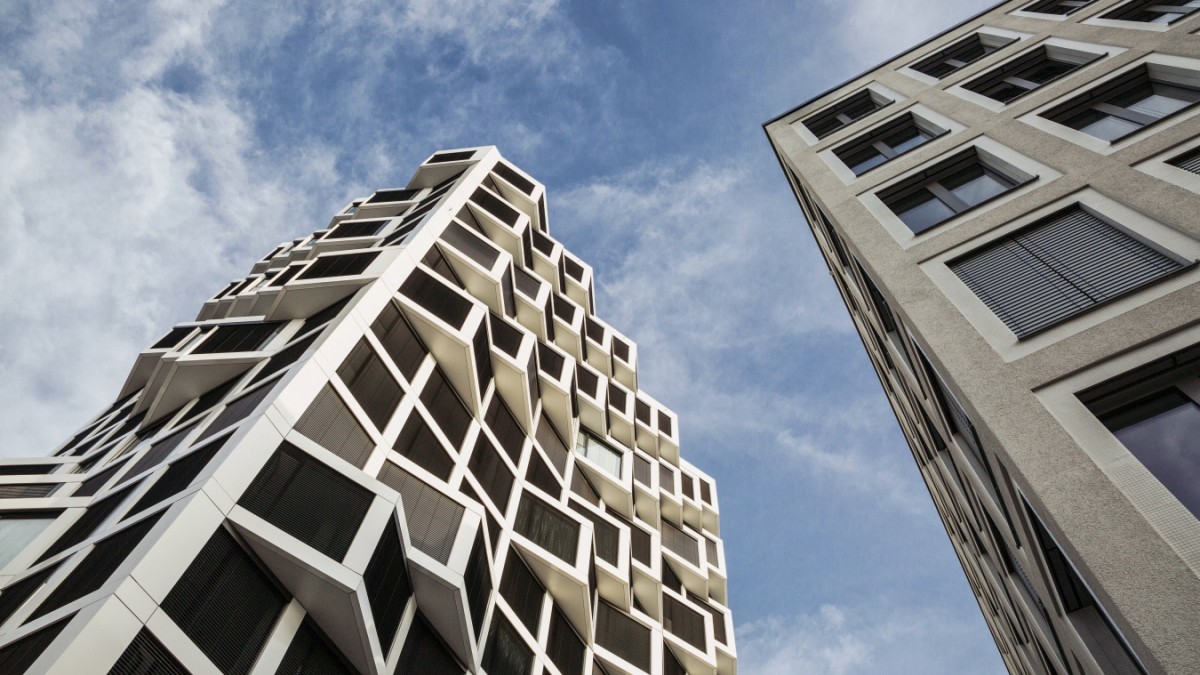Schools closed, restaurants closed, shops only partially open – not only public life was restricted during the nationwide ban on contacts. The crisis was also felt on the German real estate market. The number of advertisements for rental properties, condominiums or one and two-family houses fell by more than 40 percent in some cases during the heyday of the Corona. But now the real estate markets seem to be on the up again, at least when it comes to residential properties. There are more offers to buy and rent again – and prices are rising again.
The real estate portal Immowelt.de compared the purchase prices in the 14 largest German cities with more than 500,000 inhabitants in the months of January to June 2019 and 2020. The basis was the offers advertised there. The result: apartments became more expensive in the first half of 2020. The prices for new apartments (built in 2016 or later) increased the most. In first place is Stuttgart with a year-on-year increase of 31 percent, mainly due to the sharp rise in property prices. The square meter now costs an average of 6827 euros in the state capital of Baden-Württemberg. A year ago, according to the Immowelt figures, it was 5196 euros. The basis for the calculations is the purchase price for an apartment with three rooms and 80 square meters on the second floor.
Especially in big cities like Stuttgart, Munich or Frankfurt things are continuing to improve
The increases in other large cities were somewhat lower. In Frankfurt am Main, the prices for corresponding new apartments rose by 21 percent to 6926 euros per square meter. In Munich, Germany’s most expensive city, the increase was still nine percent. 9738 euros per square meter apartment are now due on average for a new building. “The corona pandemic is not the end of the growth cycle on the property market,” says Immowelt boss Cai Nicolas Ziegler. Home ownership is still very much in demand. “In the new construction segment, the price rally continues, because the high costs for building land and building prices, which have been rising for years, are driving the level. But buyers also have to expect higher prices for existing apartments than a year ago.” This is shown by the new evaluation of the real estate portal: According to this, existing properties (built between 1945 and 2015) and apartments in old buildings (built between 1945) also became more expensive in the first half of 2020. Take Munich, for example: the old building in Bavaria’s state capital now costs an average of 8,648 euros per square meter, an increase of nine percent. Similar properties are still much cheaper to get in Berlin: € 3,655 per square meter of old building costs in the capital, but not renovated. Immowelt also recorded significant increases in prices in Hamburg, Dresden, Leipzig and Nuremberg. According to the portal, stagnating or minimally rising prices are only found in a few segments and cities, such as Cologne for new apartments or in Bremen for existing buildings.
And what about outside of the big cities? It is also becoming more expensive nationwide to realize the dream of having one’s own four walls, according to the latest analysis by the Empirica Institute. According to their calculations, prices for newly built condominiums across Germany rose by 7.8 percent in the second quarter compared to the previous year. The surcharges for one and two-family houses are similarly high. Empirica advises, however, to be careful about the prices for houses in the expensive cities. Homes are “rare there, and the few offers are very heterogeneous; price trends must therefore not be over-interpreted,” it says in their analysis. This is especially true for the Corona months. The real estate service provider McMakler reports in its new market report that the number of new advertisements for real estate for sale fell by a good third in the first half of the year. However, the Empirica experts expect that interest in your own four walls will tend to increase due to the pandemic. “Downtown bumps are practical, but ugly with Corona. The willingness to pay for balconies or gardens has therefore increased,” the experts write. This could increase the number of German citizens who live in their own homes. But one shouldn’t expect too much from it. The analysis further notes: “For beautiful living you need sufficient income and, above all, equity. But that will be even less, as the specific prices are rising.”
– .


